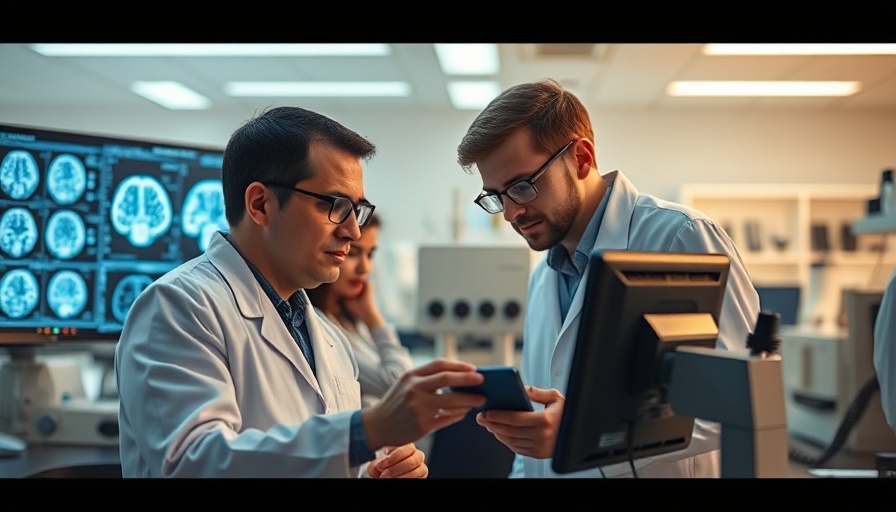
Understanding the Unseen Impact of Trauma on Witnesses
For decades, the psychological impacts of trauma have been primarily associated with individuals who experience it firsthand. However, a groundbreaking study from Virginia Tech has illuminated a consequential yet often overlooked aspect: the unique brain changes that occur in witnesses of trauma. This research, recently published in PLOS ONE, marks a pivotal step in recognizing that those who observe traumatic events—from military veterans to healthcare workers—constitute around 10% of post-traumatic stress disorder (PTSD) cases.
Reevaluating PTSD Treatment Approaches
Timothy Jarome, the lead researcher and associate professor of neurobiology, emphasizes a critical revelation from their findings: "Patients with directly acquired PTSD and bystander PTSD are treated the same way—with a combination of therapy and medication." The study suggests a need for tailored treatment strategies, as indirect trauma appears to elicit different biological responses than direct trauma. Understanding these differences could revolutionize treatment approaches, leading to more effective interventions.
The Brain's Response to Observing Trauma
Delving deeper into the findings, researchers investigated how fear responses manifest in various brain regions: the amygdala, anterior cingulate cortex, and retrosplenial cortex. They discovered distinct protein degradation patterns triggered by witnessing trauma, offering new insights into the neurobiological underpinnings of PTSD symptoms even among those who did not personally endure the event.
Gender Differences and PTSD
An intriguing aspect of the study reveals significant sex-specific differences in how male and female brains process indirect fear memories. Past studies have noted that women are approximately twice as likely as men to develop PTSD, and this research could elucidate the biological basis for that discrepancy. Jarome's team identified a specific protein, K-63 ubiquitin, linked to PTSD's development in women, paving the way for developing targeted therapies that take gender into consideration.
The Role of Empathy in Witnessed Trauma
Future explorations by Jarome could expand the understanding of bystander PTSD by examining the role of empathy—an emotional process originating in the anterior insular cortex. How a witness connects with the trauma of others, even if indirectly experienced, may play a crucial role in their mental health outcomes.
Impact of Trauma: A Community Perspective
This research is timely and relevant, especially as mental health awareness continues to grow in various communities. Understanding the nuances of PTSD not only aids professionals in mental health fields but also helps create a more informed public. Whether it’s first responders dealing with daily trauma or civilians witnessing acts of violence, acknowledging the psychological toll on bystanders is vital for comprehensive community health and wellness.
Steps Forward for Healthcare Providers
Healthcare providers will benefit from adopting a multifaceted understanding of trauma. By acknowledging the distinct psychological impacts on witnesses, practitioners can better tailor interventions and support strategies. Incorporating therapies that specifically address the reactions of bystanders could enhance recovery outcomes and promote optimal health and wellness.
Bringing Awareness to Bystander Trauma
For communities, this research advocates for increased awareness of bystander PTSD and promotes conversations surrounding mental well-being. Additionally, it underscores the importance of continuing mental health education and community support to foster resilience among those impacted by traumatic events, regardless of whether they experienced it directly or indirectly.
As trauma continues to shape our societies, understanding its implications on both direct victims and witnesses becomes increasingly necessary. This study offers a pathway toward that understanding, potentially giving rise to innovative treatments and enhanced community health initiatives.
To stay informed about advancements in mental health and wellness, particularly as they relate to our communities, join health and wellness events and discussions in your area.
 Add Row
Add Row  Add
Add 




 Add Row
Add Row  Add
Add 


Write A Comment